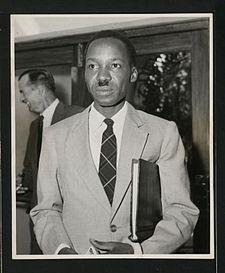For its concerns, the middle era of African philosophy is characterized by the great debate. Those who seek to clarify and justify the position held in the early epoch and those who seek to criticize and deny the viability of such position entangled themselves in a great debate. Some of the actors on this front include, C. S. Momoh, Robin Horton, Henri Maurier, Lacinay Keita, Peter Bodunrin, Kwasi Wiredu, Kwame Gyekye, Richard Wright, Barry Halen, Joseph Omoregbe, C. B. Okolo, Theophilus Okere, Paulin Hountondji, Gordon Hunnings, Odera Oruka and A. F. Uduigwomen to name a few.
The giver sameness essays
The ethics of a society is embedded in the ideas and beliefs about what is right or wrong, what is a good or bad character it is also embedded in the conceptions of satisfactory social relations and attitudes held by the members of the society it is embedded, furthermore, in the forms or patterns of behavior that are considered by the members of the society to bring about social harmony and cooperative living, justice, and fairness. The ideas and beliefs about moral conduct are articulated, analyzed, and interpreted by the moral thinkers of the society.
What Was Ujamaa and How Did It Affect Tanzania?
Uduigwomen states that the eclectic school holds that an intellectual romance between the Universalist conception and the Particularist conception will give rise to an authentic African philosophy. The Universalist approach will provide the necessary analytic and conceptual framework for the Particularist school. Since, according to Uduigwomen, this framework cannot thrive in a vacuum, the Particularist approach will in turn supply the raw materials or indigenous data needed by the Universalist approach. From the submission of Uduigwomen above, one easily detects that Eclecticism for him entails employing Western methods or African paraphernalia.
Departamentos temporarios la plata
The Akan word translated &lsquo needs&rsquo is hia , which, as used in this maxim, has a normative connotation thus, it does more than simply expressing a fact about human life or the human condition. The real meaning of the maxim, then, is that a human being deserves, and therefore ought, to be helped. It also means that a human being must be regarded as an object of moral concern and should therefore be entitled to help by others in the appropriate circumstances. The reason why you should help someone in need is also given in the following maxim, among others:
There is no human being who does not desire peace, security, freedom, dignity, respect, justice, equality, and satisfaction. It is such a moral, not a weird, notion embracive of fundamental goods goods that are intrinsic to human fulfillment and to which all individuals desire to have access that is referred to as the common good. The unrelenting support by people in a community for such moral values as social justice and equality on the one hand, and the spontaneous, universal denunciation of acts such as murder and cruelty on the other hand, are certainly inspired by beliefs in the common good.
Racialism, as Ruch and Anyanwu believed, may have sparked it off and slavery may have dealt the heaviest blow, but it was colonialism that entrenched it. Ironically, it was the same colonialism at its stylistic conclusion that opened the eyes of the African by stirring the hornet's nest. Trouble started when the departing colonialists let the Africans know, to their humiliation, that the colonial identity they brandished was a fake one. An African can never be a British or French even with the colonially imposed language and culture. With this shock, the post colonial African philosophers of the early period set out in search of Africa's lost identity.
African ethics, is a humanitarian ethics, the kind of ethics that places a great deal of emphasis on human welfare. The concern for human welfare may be said to constitute the hub of the African axiological wheel. This orientation of African ethics takes its impulse, undoubtedly, from the humanistic outlook that characterizes traditional African life and thought. Humanism the doctrine that sees human needs and interests as fundamental thus constitutes the foundation of African ethics (see section 5 above).
Let me start the analysis of moral personhood in African moral philosophy with a statement made by Ifeanyi Menkiti, an African philosopher from Nigeria:
We would begin with an inquiry into African moral language, in search specifically of the word for &lsquo ethics&rsquo in a few African languages. Such an inquiry will give some insight into the basic conception and understanding of ethics or morality. It must be noted right from the outset that a substantial number of Sub-Saharan African languages do not have words that can be said to be direct equivalents of the word &lsquo ethics&rsquo or &lsquo morality&rsquo . Here are some interesting results of inquiries made from native speakers of a few African languages and how statements about a person's ethical or moral conduct are expressed in those languages, including two of the prominent languages in Ghana, Akan (the author's native language) and Ewe.
There appears to be a conceptual tie perhaps also a practical tie between the social ethic prescribed by the communitarian ethos and the ethic of duty mandated by the same ethos.

"Nyerere ujamaa-essays socialism in denmark" in pictures. More images "Nyerere ujamaa-essays socialism in denmark".

